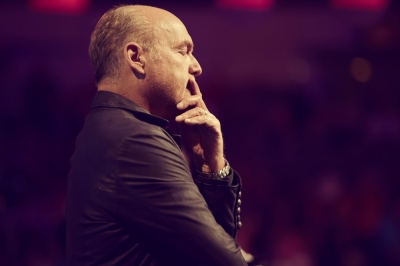The Divine Paradox
"For whoever exalts himself will be humbled, and he who humbles himself will be exalted."
— Luke 14:11

If we have learned nothing else from our culture telling us what we should do to be happy, we have learned this: It is just not true. We have realized where happiness isn't.
Prior to becoming a Christian, I already knew the answer was not in the world. I knew it wasn't in my mother's world of hedonism and drinking and partying. I knew it wasn't in my world, limited as it was at seventeen years old. So I was wondering where it was. And then I became a Christian.
We have a different paradigm to follow, given to us by God in His Word. We could call it the divine paradox, because in God's economy, if we want to be great, we must learn to be humble. If we want self-fulfillment, we should seek the fulfillment of others.
Regarding this divine paradox, Malcolm Muggeridge pointed out, "Where, then, does happiness lie? In forgetfulness, not indulgence, of self. In escape from sensual appetites, not in their satisfaction."
The way to happiness is sadness. By that I mean we are sad over our sinful state, so we turn to God, ask for His forgiveness, and enter into a relationship with Him. Jesus gave us the beautiful beatitude, "Blessed are those who mourn, for they shall be comforted" (Matthew 5:4). Another way to translate this would be, "Oh how happy are the unhappy." There is no greater example of this upside down life than Jesus Christ Himself.
We want to find our happiness and our joy in the right place, or more specifically, in the right person, which is God. As we come to know and walk with Him, we will find something better than happiness, and that is joy. We will find joy in our circumstances, regardless of what they are.





























